Daybreak in Udi is a British film of genre Documentary
Daybreak in Udi (1949)
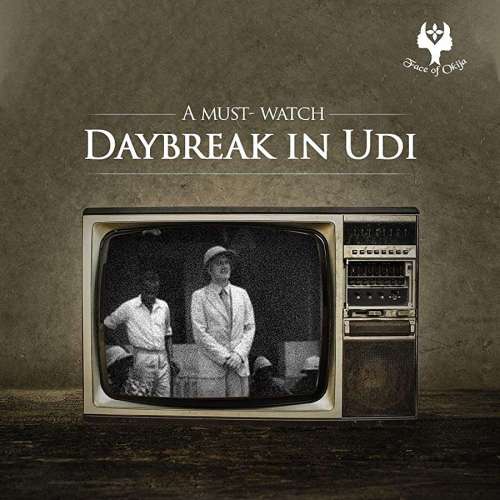
If you like this film, let us know!
Daybreak in Udi is a 1949 British documentary film directed by Terry Bishop about cultural changes in Udi, Nigeria. It won the Academy Award for Best Documentary Feature.
Synopsis
It is 1949, and colonial Nigeria is undergoing an identity crisis. There is a clash between the progressive, educated elements of society - those who desire westernization and modernity- and traditionalists who want to maintain Nigerian heritage. Two young African teachers, Iruka and Dominic (Fanny Elumeze, Harford Anerobi) decide the village of Udi should have a maternity home, itself a symbol of progressiveness and modernization. The British District Officer, E.R. Chadwick (E.R. Chadwick), after some persuasion, assents to this decision and agrees to provide the resources for the project. Before work can begin, Chadwick wants to ensure that everyone in the village is on board for the task, but it quickly becomes clear that this is not the case. A man named Eze (Josef Amalu), an elderly resident, believes that building the maternity home is both an affront to the tradition and culture of the village, and works to persuade others towards his view.Comments
Leave comment :
Suggestions of similar film to Daybreak in Udi
There are 8976 with the same cinematographic genres, 1383 films with the same themes, to have finally 70 suggestions of similar films.If you liked Daybreak in Udi, you will probably like those similar films :
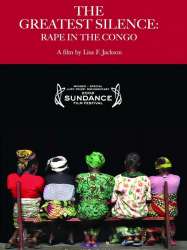 , 1h16
, 1h16Origin USA
Genres Documentary
Themes Films set in Africa, Films about immigration, Documentary films about law, Documentary films about war, Documentary films about historical events, Documentaire sur une personnalité
Rating71%





In 2006, producer/director Lisa F. Jackson travelled alone to the war zones of the Democratic Republic of the Congo documenting the plight of women and girls impacted by the conflicts there. She was "afforded privileged access" to the realities of life in Congo, and found "examples of resiliency, resistance, courage and grace". In a 2008 interview with NPR, Jackson said "I knew going to eastern Congo as a white woman alone in the bush with a video camera that I might as well have landed from a spaceship." Jackson had been a victim of gang rape thirty years earlier, and shared this experience with the survivors she interviewed. Much of the film features these women recounting their stories, which have left them "traumatised and isolated - shunned by society and their families, and suffering life-long health effects, including HIV." Context and background are discussed in interviews with doctors, politicians, peacekeepers, activists and priests. Jackson visits a clinic devoted to treating women with traumatic injury due to sexual violence, particularly cases of vesicovaginal and rectovaginal fistula. In addition, Jackson went out into the bush to interview some of the perpetrators, soldiers who spoke without apparent conscience about the women they had raped, and their often bizarre justifications. "You really can say that there's a culture of impunity in the Congo, where none of these men will face arrest for what they've confessed to me on videotape," Jackson noted. The focus of the film, though, is the stories of the victims, "who just poured their hearts out to me with these stories, including over and over again, please take these stories to someone who will make a difference.

Ibo, o sangue do silêncio (1981)
, 11minutesGenres Documentary
Themes Films set in Africa, Documentary films about law, Documentary films about historical events, Documentary films about politics, Political films
To the North of the country, the Island of Ibo was used as the jail where the Portuguese political police tortured without remorse the Mozambique nationalists. This documentary reflects that jail, the consequences of colonization and the Resistance.
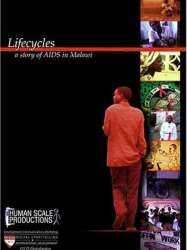
Origin Canada
Genres Documentary
Themes Films set in Africa, Medical-themed films, Documentary films about health care, HIV/AIDS in film
Lifecycles: a Story of AIDS in Malawi is an hour long documentary film shot over an eight-month period on location in Malawi, Africa. Malawi won't perish, but must grow with the virus as catalyst. Lifecycles provides a detailed glimpse into the lives of the Malawian people living with HIV and AIDS. Directors Doug Karr and Sierra Bellows travel across Malawi bringing us a glimpse of a complex situation that encompasses sadness and hope, defeat and renewal.

Lost Boys of Sudan (2003)
, 1h27Genres Documentary
Themes Films set in Africa, Films about children, Films about immigration, Documentary films about law, Documentary films about war, Documentary films about historical events, Documentaire sur une personnalité
Rating74%






La Robe du temps (2008)
, 52minutesOrigin France
Genres Documentary
Themes Films set in Africa
In Zinder, the 2nd largest city in Niger, Ousseini is the young chief of the very traditional Brotherhood of Butchers. While trying to develop a channel for exporting beef from his region, he faces another challenge; he must legitimize his recently acquired role as a traditional chief while at the same time asserting his role as an innovator.
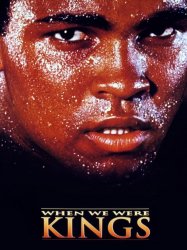
When We Were Kings (1997)
, 1h29Origin USA
Genres Documentary, Historical, Musical
Themes Films set in Africa, Sports films, Martial arts films, Boxing films, Documentary films about sports, Le boxe anglaise
Actors George Plimpton, Spike Lee, Norman Mailer, Malick Bowens, Miriam Makeba, Drew Bundini Brown
Rating78%





En 1974, à Kinshasa, capitale du Zaïre, a lieu une rencontre historique entre les deux poids lourds les plus reputés des Etats-Unis, Mohammed Ali, alias Cassius Clay, et George Foreman. A trente-deux ans, Ali va tenter de reconquérir le titre de champion du monde face à Foreman, vingt-cinq ans, auréolé de ses victoires sur Frazier et Norton. Le 30 octobre, le stade de Kinshasa ouvre ses grilles à 4 heures du matin.
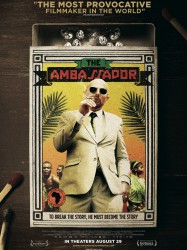
The Ambassador (2011)
, 1h33Origin Danemark
Genres Documentary, Historical
Themes Films set in Africa, Documentary films about politics, Political films
Rating71%





Le film traite de l'expérience de Mads Brügger, qui achète une accréditation diplomatique libérienne auprès de la République centrafricaine afin de faire du trafic de diamants, tout en prétextant vouloir créer une usine d'allumettes : ce faisant, il dévoile la corruption qui lie le courtage du titre de diplomate et les diamants de conflits.

The Colour of Olives (2006)
, 1h37Directed by Carolina Rivas
Origin Israel
Genres Documentary
Themes Films set in Africa, Films about families, Films about religion, Documentary films about law, Documentary films about war, Documentary films about historical events, Documentaire sur une personnalité, Documentary films about politics, Documentary films about religion, Political films, Films about Jews and Judaism
Rating70%






An African Election (2011)
Genres Drama, Documentary, Historical
Themes Films set in Africa, Documentary films about politics, Political films
Rating73%





An African Election is a political documentary that exposes the never-before-seen, nitty-gritty of political electioneering in Africa. It captures the intrigues of political campaigns; the almost carnival like atmosphere that is laced with fear of the unknown and the danger that lurks behind-the-scenes.
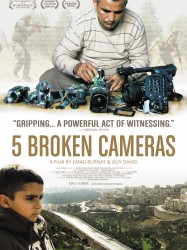
Five Broken Cameras (2011)
, 1h34Origin Israel
Genres Drama, War, Documentary, Crime
Themes Films set in Africa, Films about films, Films about religion, Documentary films about business, Documentary films about the film industry, Documentary films about law, Documentary films about war, Documentary films about historical events, Documentaire sur une personnalité, Documentary films about politics, Documentary films about religion, Political films, Films about Jews and Judaism, Documentary films about films
Rating78%





There are five cameras — each with its own story. When his fourth son, Gibreel, is born in 2005, self-taught cameraman Emad Burnat, a Palestinian villager, gets his first camera. At the same time in his village of Bil’in, the Israelis begin bulldozing village olive groves to build a barrier to separate Bil'in from the Jewish Settlement Modi'in Illit. The barrier's route cuts off 60% of Bil'in farmland and the villagers resist this seizure of more of their land by the settlers.
 Connection
Connection